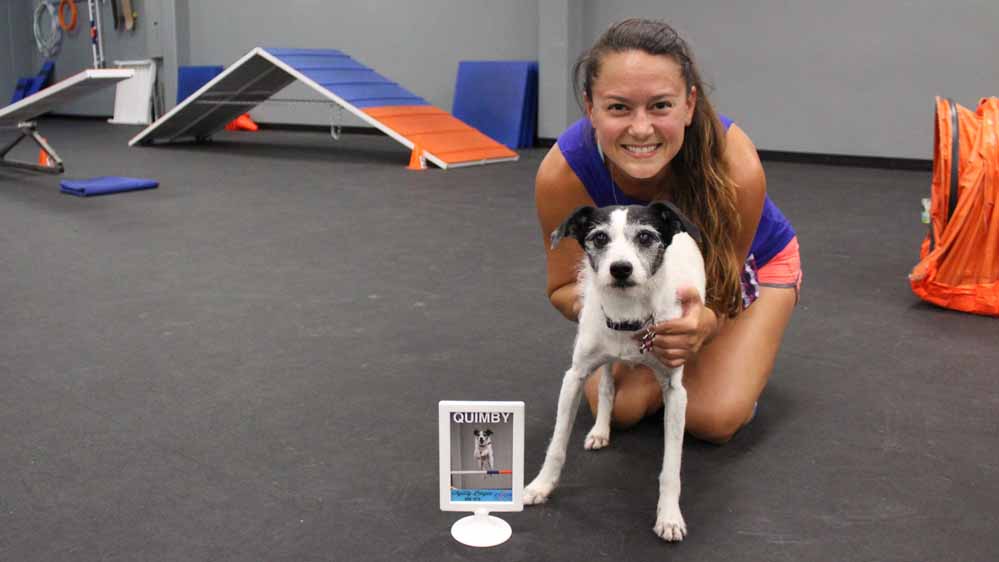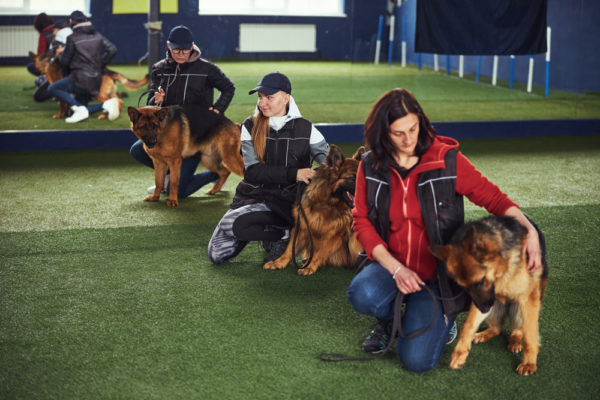Dog Training For Dogs: Proven Techniques to Suppress Unwanted Behavior
Dog Training For Dogs: Proven Techniques to Suppress Unwanted Behavior
Blog Article
Necessary Dog Educating Tips for Raising a Well-Behaved Buddy
Vital techniques such as very early socialization, the establishment of constant commands, and the application of positive support can dramatically affect a canine's actions and total disposition. Understanding canine actions is vital for customizing training strategies that resonate with individual pets.
Comprehending Canine Behavior

Furthermore, socializing plays a crucial function in shaping a canine's actions. Direct exposure to various environments, people, and various other pets helps canines establish confidence and reduces the possibility of fear-based reactions. Early socialization is especially important, as experiences during the critical advancement period substantially affect a dog's long-lasting habits.
Moreover, recognizing the principles of finding out theory-- such as favorable support, adverse support, and penalty-- can boost training efficiency. Dogs are extra most likely to duplicate habits that produce positive outcomes. As a result, employing constant, reward-based training methods fosters a trusting partnership between the pet dog and its instructor.

Fundamental Commands to Teach
Teaching standard commands is a crucial structure for effective pet training and interaction. Dog Training For Dogs. These commands not only aid establish a clear line of communication between you and your pet dog, yet they also promote safety and security and etiquette in various scenarios
Begin with basic commands such as "Sit," "Keep," "Come," "Down," and "Heel." Each command offers a details objective; for instance, "Sit" can help calm an excited dog, while "Come" is essential for ensuring your canine go back to you when called.
When introducing a new command, make use of a regular and clear tone. Gradually boost the period and range as your canine comes to be much more skillful.
Consistency is crucial; technique commands daily to enhance understanding, and make sure all household members utilize the very same commands to prevent complication. Bear in mind that patience is required during this process, as different canines may learn at different paces. Establishing these fundamental commands advertises an unified partnership and establishes the phase for more sophisticated training in the future.
Positive Support Methods
Positive reinforcement techniques are highly efficient methods for encouraging wanted actions in pet dogs. This training method involves satisfying your pet dog for exhibiting behaviors you wish to reinforce, thus enhancing the probability of those habits being repeated. Rewards can take various forms, including deals with, appreciation, or play, and must be tailored to what motivates your dog most.
Timing is important in positive reinforcement. Rewards need to be given instantly after the preferred actions strikes develop a clear organization. If you want your dog to rest on command, award them as soon as they rest, guaranteeing they comprehend what action is being enhanced.
Consistency is another essential element. Dog Training For Dogs. Utilize the same commands and incentives each time to prevent confusion. Slowly, you can phase out deals with for more intermittent incentives, such as verbal appreciation, to preserve the behavior without depending on continuous exterior reinforcement
Additionally, it is necessary to stay patient and prevent punishment, as unfavorable reinforcement can cause fear and anxiousness, ultimately preventing training efforts. By applying positive support techniques, you will certainly foster a relying on relationship with your pet dog, causing a well-behaved friend.
Socialization and Communication
Socializing and interaction are basic aspects of a pet dog's growth that complement favorable support techniques. Very early direct exposure to diverse settings, people, and various other pets is essential for cultivating a well-adjusted pet. This procedure aids dogs establish self-confidence and adaptability, decreasing the chance of behavioral problems such as concern or aggressiveness.
Begin socialization during the important developing window, usually in between 3 and fourteen my company weeks old. Present your puppy to various stimulations, consisting of various sounds, sights, and structures. Enlist in pup courses or prepare monitored playdates with various other dogs to encourage positive interactions.
As canines grow, proceed to subject them to different experiences. Tasks such as brows through to parks, pet-friendly shops, or area occasions can boost their social abilities and convenience degrees in unknown setups.
Always keep an eye on communications to ensure they are positive and trouble-free. Steadly reroute them and enable for gradual exposure at a comfy rate if your pet dog displays signs of anxiety or aggression. Via constant socialization and interaction, you lay the foundation for a well balanced, mannerly companion with the ability of growing in varied social circumstances.
Consistency in Training
Establishing consistency in training is important for efficient communication between a pet dog and its owner. Pet dogs flourish on regular and clear assumptions, which assists them comprehend what habits is desired.
Consistency likewise extends past commands; it incorporates the guidelines developed within the home. For instance, if a pet dog is not enabled on the furniture, this regulation should be enforced at all times. Blended signals can lead to behavior problems, as the canine might end up being uncertain concerning what serves.
In addition, all relative need to be on the same web page concerning training strategies and commands. If someone rewards a habits while an additional lectures it, the dog may end up being anxious and disoriented.
Conclusion
In verdict, executing necessary dog training ideas cultivates a well-behaved friend. Early socializing, regular commands, and favorable support are important parts that add to reliable training. Establishing clear interaction and keeping a regular improves the dog's understanding of expectations, while perseverance ensures long-term success. Ultimately, these methods grow a trusting relationship in between the visit pet and its family members, promoting an unified living environment and a well-adjusted canine buddy (Dog additional hints Training For Dogs).
Important techniques such as very early socializing, the establishment of constant commands, and the application of favorable support can dramatically influence a pet dog's habits and overall personality. Recognizing canine behavior is important for tailoring training techniques that reverberate with individual canines.Understanding canine habits is essential for effective dog training. Canines are extra most likely to repeat behaviors that yield positive outcomes.Positive support strategies are very reliable techniques for encouraging preferred actions in canines.
Report this page